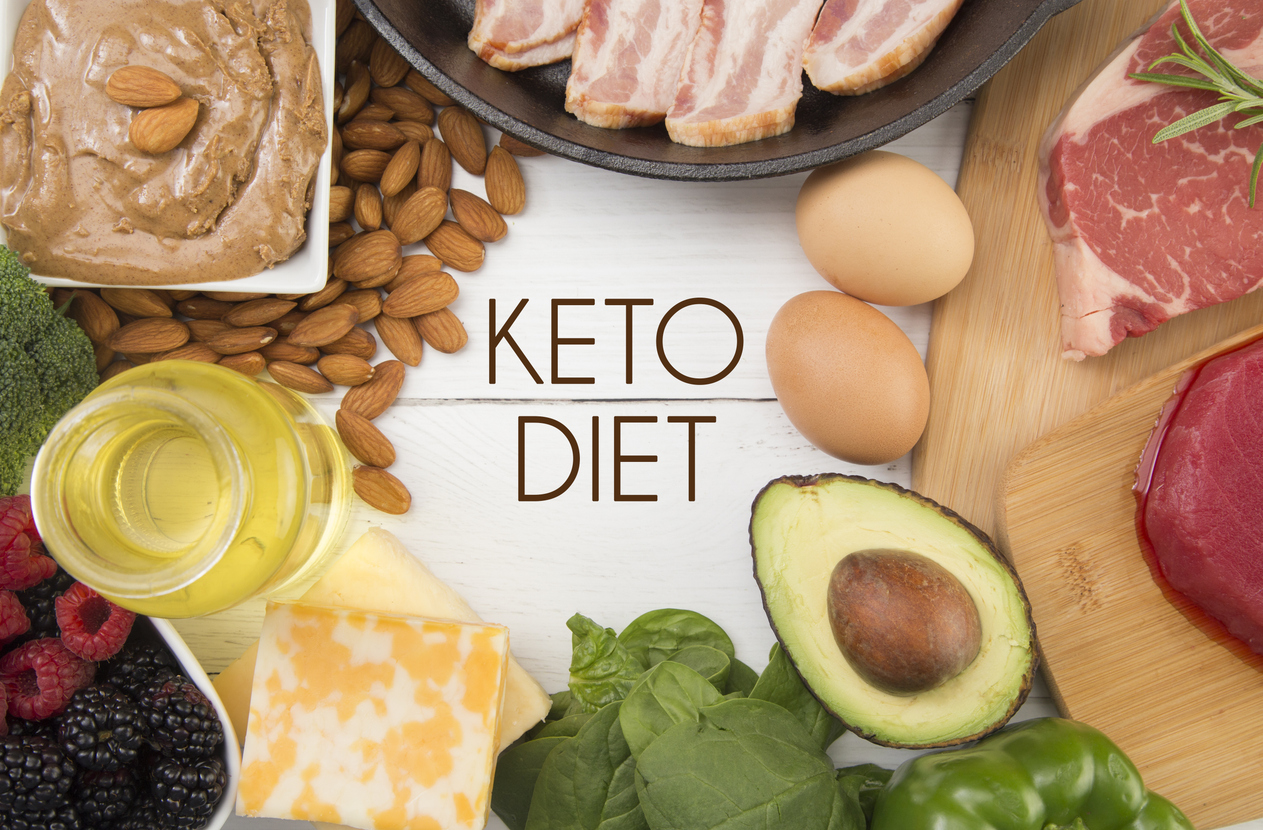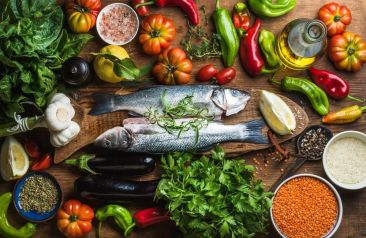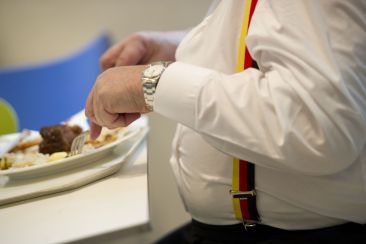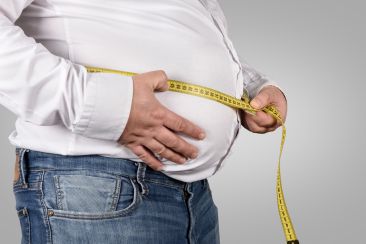
The Pros and Cons of the Keto Diet
Pros and Cons of the Keto Diet
The keto diet helps some people lose weight and control blood sugar, but it also comes with side effects like keto flu and nutrient loss.
This guide breaks down the key benefits and risks to help you determine if the keto diet is right for your health goals.
The keto diet has gained significant popularity in recent years. You may have heard people talk about eating a lot of bacon, eggs, and cheese while limiting their intake of bread and sugar. That’s because the keto diet is all about eating a lot of fat, a medium amount of protein, and very few carbs (like bread, pasta, or fruit).
But why do people do this?
The goal of the keto diet is to get your body into a state called ketosis. That’s when your body starts using fat for energy instead of sugar (glucose). Some people say it helps them lose weight quickly or feel more focused. Others use it to help with health problems like diabetes or epilepsy (a brain disorder that causes seizures).
However, the keto diet isn’t perfect. While it may benefit some people, it also carries some risks, such as missing out on essential nutrients, feeling tired initially, or having difficulty sticking to it.
In this blog, we’ll look at the good and bad sides of the keto diet. You’ll learn how it works, who it might help, and why it might not be right for everyone. By the end, you’ll have a better idea if this high-fat, low-carb diet is something worth trying or something better to skip.
Let’s get started!
What Is the Keto Diet and Why Do People Try It?
The keto diet is a way of eating that’s very different from a regular diet. On keto, you eat:
- Lots of fat (like cheese, eggs, meat, and butter)
- Some protein (like chicken or fish)
- Very few carbs (like bread, rice, candy, or soda)
Most of the time, your body gets energy from carbs. Carbs turn into sugar in your body, which gives you fuel to do things like think, play, and move around.
But when you eat very few carbs, your body runs out of sugar. So, it switches to burning fat for energy instead. This is called ketosis.
In ketosis, your liver makes something called ketones, which are like backup fuel made from fat. Your body and brain can use ketones to keep going, even without sugar.
Here’s a simple way to think about it:
No carbs = no sugar, which means the body burns fat instead
People go on the keto diet to:
- Lose weight
- Feel more focused
- Help with specific health issues, such as diabetes or seizures.
However, the diet can be challenging to follow because it eliminates many foods we typically consume, such as bread, fruit, and sweets.
Keto Diet Cons: Side Effects and Challenges
Even though the keto diet has some good parts, it also comes with challenges and side effects. Let’s look at some of the reasons why keto might not be right for everyone.
1. You Might Feel Sick at First (“Keto Flu”)
When you first start keto, your body needs time to switch from burning sugar to burning fat. During this time, some individuals may feel tired or unwell. This is called the “keto flu.”
You might feel:
- Headaches
- Nausea (feeling like you want to throw up)
- Dizziness
- Crabby or upset
- Tired or weak
The good news is: this usually goes away after a few days or a week.
2. You Can’t Eat a Lot of Foods You Might Like
On keto, you have to give up:
- Bread, pasta, cereal
- Fruits like bananas and apples
- Candy, soda, and most desserts
This can be hard, especially at parties, school lunches, or family meals. It can feel strict and limiting, which makes it tough to stick with in the long term.
3. You Might Miss Important Nutrients
Because you’re eating fewer fruits, grains, and veggies, you might not get enough vitamins and minerals your body needs, like:
- Fiber
- Vitamin C
- Potassium
- Magnesium
Not getting enough of these can make you feel tired, constipated, or even cause other health problems.
4. Tummy Trouble (Too Little or Too Much Bathroom Time)
Keto can mess with your digestion. Some people get:
- Constipated (trouble pooping) because of low fibre
- Or have diarrhoea (too much pooping) from eating too much fat too fast
This can be uncomfortable or even embarrassing.
5. It Might Not Be Great for Your Heart or Kidneys
If you eat a lot of unhealthy fats (like bacon, butter, and fried foods), your cholesterol could go up, and that’s not good for your heart.
Also, some doctors worry that keto could be hard on your kidneys, especially if you don’t drink enough water or if you have kidney problems already.
6. It’s Hard to Stay On
Let’s be real, keto is hard to follow. It takes a lot of planning and can be expensive. If you stop doing it and return to eating normally, you may quickly regain the weight you lost.
So even though keto can work for some people, it’s not for everyone. Next, we’ll discuss who should try it and who may not be suitable candidates.
Keto Diet Benefits: Why Some People Love It
The keto diet can offer significant benefits for specific individuals. Let’s look at a few of the main reasons why people like it.
It Can Help You Lose Weight
One big reason people try the keto diet is to lose weight. When your body runs out of carbs and starts burning fat for energy, it can help you burn body fat faster.
Additionally, consuming more fat and protein can help you feel full for longer, which may reduce the need for snacking or frequent eating.
Example: Instead of cereal for breakfast, you might eat eggs and bacon, foods that keep you full longer.
It May Help With Blood Sugar Problems
People with type 2 diabetes (a disease where your blood sugar stays too high) sometimes use the keto diet to help lower their blood sugar.
Because the keto diet has so few carbs, it causes fewer sugar spikes. Some people are even able to take less medicine after being on keto, but this should always be done with a doctor’s help!
It’s Good for Some Brain Disorders
Keto was first used almost 100 years ago to help children with epilepsy (a condition that causes seizures). For some kids, keto helps their seizures happen less often or not at all.
Now, doctors are even studying whether keto might help with other brain problems like Alzheimer’s and Parkinson’s disease. It’s not a cure, but it shows promise.
It Might Help With Heart Health (For Some)
When done the right way, the keto diet may help lower triglycerides (a type of fat in your blood) and raise good cholesterol (HDL).
However, this only works if you consume healthy fats, such as nuts, olive oil, and fish. Eating too much butter, bacon, or fried foods can worsen your heart health.
Some People Feel More Focused or Energetic
Some people claim to feel sharper and less tired on the keto diet. This might be because your brain is running on ketones, which some believe give a steady kind of energy.
Not everyone feels this way, but some do!
Quick Comparison Table
|
Pros (Good Things) |
Cons (Not-So-Good Things) |
|
Helps with weight loss |
It can be hard to stick to |
|
May lower blood sugar |
Might cause "keto flu" (feeling tired, sick at first) |
|
Helps people with epilepsy |
Can lead to nutrient shortages (like fibre, vitamins) |
|
Some feel more focused |
May cause constipation or stomach issues |
|
It may help with heart health (if done right) |
Can raise bad fats if consumed in excess, such as through eating too much bacon, butter, etc. |
|
Less hunger between meals |
Not great for kids, pregnant women, or people with specific health problems |
Keto Diet Cons: Side Effects and Challenges
The keto diet can help some people, but it’s not perfect. There are a few things to keep in mind before trying it.
You Might Feel Sick at First (Keto Flu)
When you stop eating carbs, your body must learn how to utilise fat for energy. This change can cause you to feel unwell for a few days. People refer to this as the “keto flu.”
You might feel:
- Tired
- Dizzy
- Grumpy
- Headache
- Trouble sleeping
It usually goes away after a few days. Drinking more water and eating salt can help.
Stomach Problems
The keto diet doesn’t have a lot of fibre (which helps you go to the bathroom). So, you might get constipated.
Some people also get diarrhoea or feel bloated, especially when they eat too much fat too fast.
You May Miss Out on Healthy Foods
On keto, you can’t eat many foods like:
- Fruit
- Bread and rice
- Beans
- Cereal
This means you could miss out on essential vitamins and minerals your body needs, like vitamin C, potassium, and fibre. You may need to take vitamins to maintain your health.
Too Much Fat Can Be Bad for Your Heart
If you eat a lot of bad fats (like bacon, butter, or fried foods), it could raise your bad cholesterol. That might hurt your heart in the long run.
Try to eat healthy fats like:
- Nuts
- Avocados
- Olive oil
- Fish
It Can Be Hard on Your Body
If you don’t drink enough water or get enough minerals, you might feel weak or get kidney stones (painful stones in your kidneys).
Some kids on keto (for health reasons) have had:
- Weak bones
- Slow growth
- Broken bones
That’s why it’s essential to do keto only with a doctor’s help, especially for kids
It’s Hard to Keep Up
The keto diet is rigorous. You can’t eat:
- Pizza
- Bread
- Ice cream
- Most fruits
This can make it hard to eat with friends or enjoy parties. Many people stop doing keto after a while because it’s too hard to follow.
Who Should Try the Keto Diet and Who Shouldn’t
The keto diet is not for everyone. It can help some people, but it might be unsafe or unhealthy for others. Let’s break it down:
People Who Might Try Keto
- People with Type 2 Diabetes
Some adults with diabetes use the keto diet to help lower their blood sugar. However, they should always consult a doctor first. - People Who Want to Lose Weight
The keto diet can help some people lose weight because it makes them feel full and reduces their intake of junk food. - People with Epilepsy
Doctors sometimes use the keto diet to help kids who have seizures from a brain problem called epilepsy. It doesn’t work for everyone, but it helps some people feel better.
People Who Should Not Try Keto (or Be Very Careful)
- Kids and Teens (Unless a Doctor Says So)
Most kids and teens (like you!) should not do keto unless a doctor tells them to. You’re still growing, and your body needs lots of different foods. - Pregnant or Breastfeeding Women
Women who are pregnant or breastfeeding need more nutrients. Keto doesn’t give them enough of what they need. - People with Kidney or Liver Problems
Keto can be taxing on your organs, such as your kidneys and liver. If someone has health problems, keto could make things worse. - People with Eating Disorders
Keto is a rigorous diet, and it can cause people to have unhealthy thoughts about food if they struggle with eating problems. - People Who Don’t Like Fatty Foods
If you don’t like foods like eggs, cheese, meat, or butter, sticking to a keto diet will be challenging.
Even if you’re healthy, it’s smart to talk to a doctor or nutrition expert before starting keto. They can help make sure you’re doing it the proper and safe way.
How to Start the Keto Diet Safely and Effectively
If you want to try the keto diet, it’s essential to do it the right way. Here are some simple tips to help you stay healthy and feel great while following the keto diet.
1. Pick Healthy Fats
Not all fats are good for you. On keto, you eat a lot of fat, so try to choose the healthy kind.
Better fats:
- Olive oil
- Nuts and seeds
- Avocados
- Fish like salmon
Avoid too much:
- Butter
- Bacon
- Fried foods
Too much of the wrong fat can be bad for your heart.
2. Eat Veggies with Low Carbs
Even though keto is low in carbs, you still need to eat vegetables to get fibre and vitamins.
Good veggies for keto:
- Spinach
- Broccoli
- Zucchini
- Kale
- Cauliflower
These vegetables help support your stomach and promote overall health.
3. Drink Water and Get Minerals
When you start the keto diet, your body loses water and minerals. This can make you feel tired or dizzy.
To help:
- Drink lots of water
- Eat a little more salt
- Ask your doctor if you need vitamins or supplements
4. Keep Track of Your Food
Some people on keto like to write down what they eat. This helps them stay on track.
You can also:
- Notice how much fat, protein, and carbs you eat
- See how you feel (tired? full of energy?)
- (Optional) Use test strips to check if your body is in ketosis
5. Ask a Doctor or Food Expert for Help
Before you start keto, talk to a doctor or dietitian. They can:
- Help you plan your meals
- Make sure you’re doing it safely
- Watch out for any health problems
Don’t try keto on your own if you have health issues.
Keto Diet FAQ for Beginners
What is the keto diet and how does it work?
The keto diet works by reducing carbs and increasing fats to enter a state called ketosis, where the body burns fat for energy instead of sugar.
Is the keto diet safe for beginners?
Yes, keto can be safe for beginners if done correctly. It’s important to eat healthy fats, drink water, and consult a doctor before starting.
What are the most common keto side effects?
Common side effects include keto flu, constipation, fatigue, and bad breath. These usually improve after the first week.
Can the keto diet help with weight loss?
Yes, the keto diet helps many people lose weight by reducing hunger and increasing fat burning through ketosis.
What foods are allowed and not allowed on keto?
Allowed: meat, eggs, cheese, leafy greens, nuts.
Not allowed: bread, pasta, fruit, sugary snacks, soda.
Who should avoid the keto diet?
Children, pregnant women, and people with kidney or liver issues should avoid keto unless under medical supervision.
If you're not sure where to start, a Weight Loss Coach can help guide you. They’ll create a plan tailored to your body, goals, and lifestyle.


